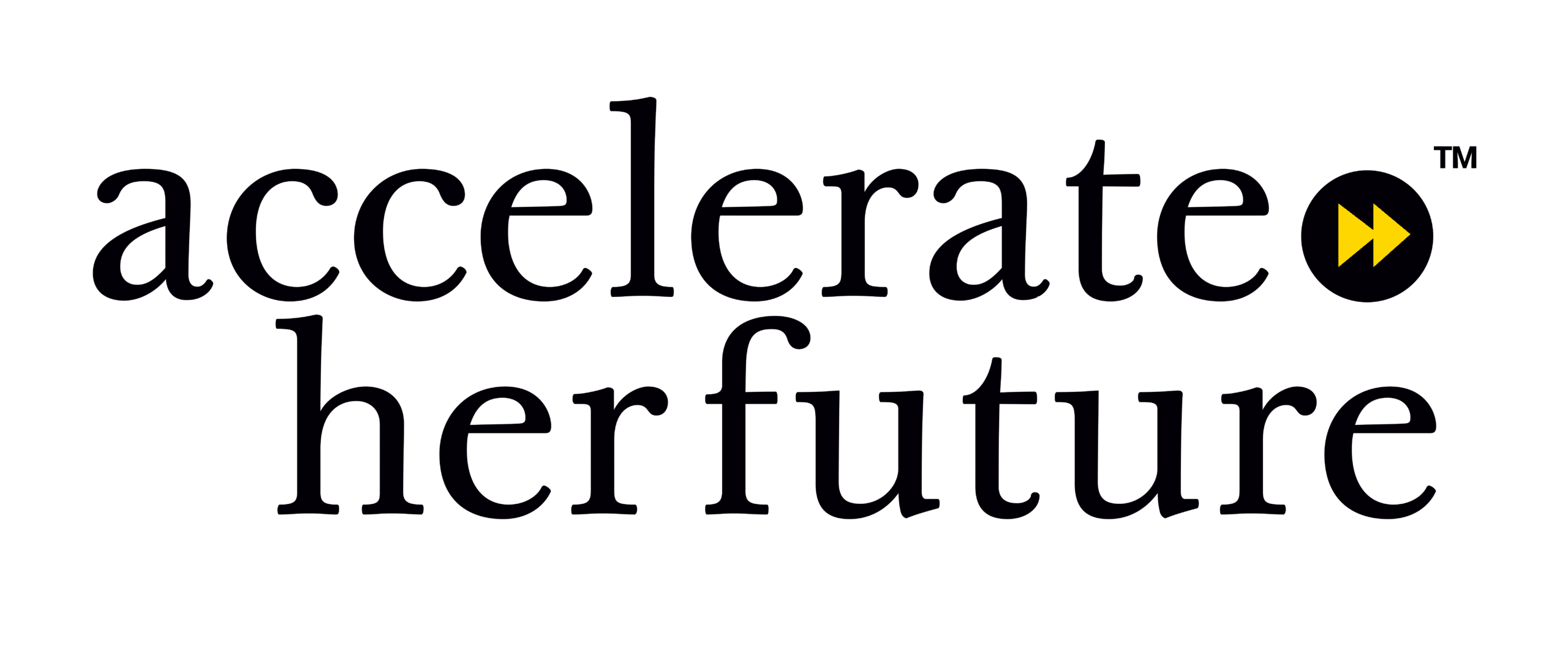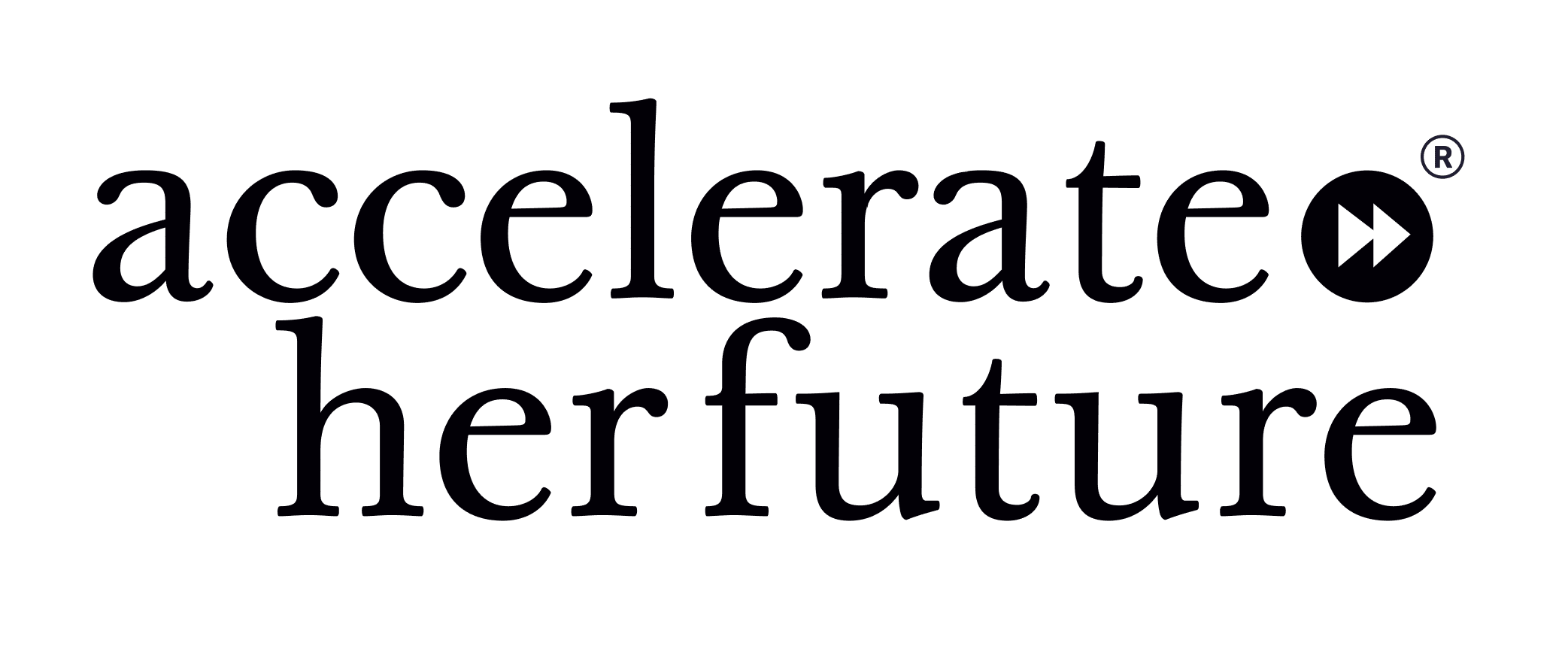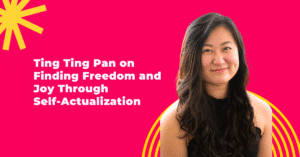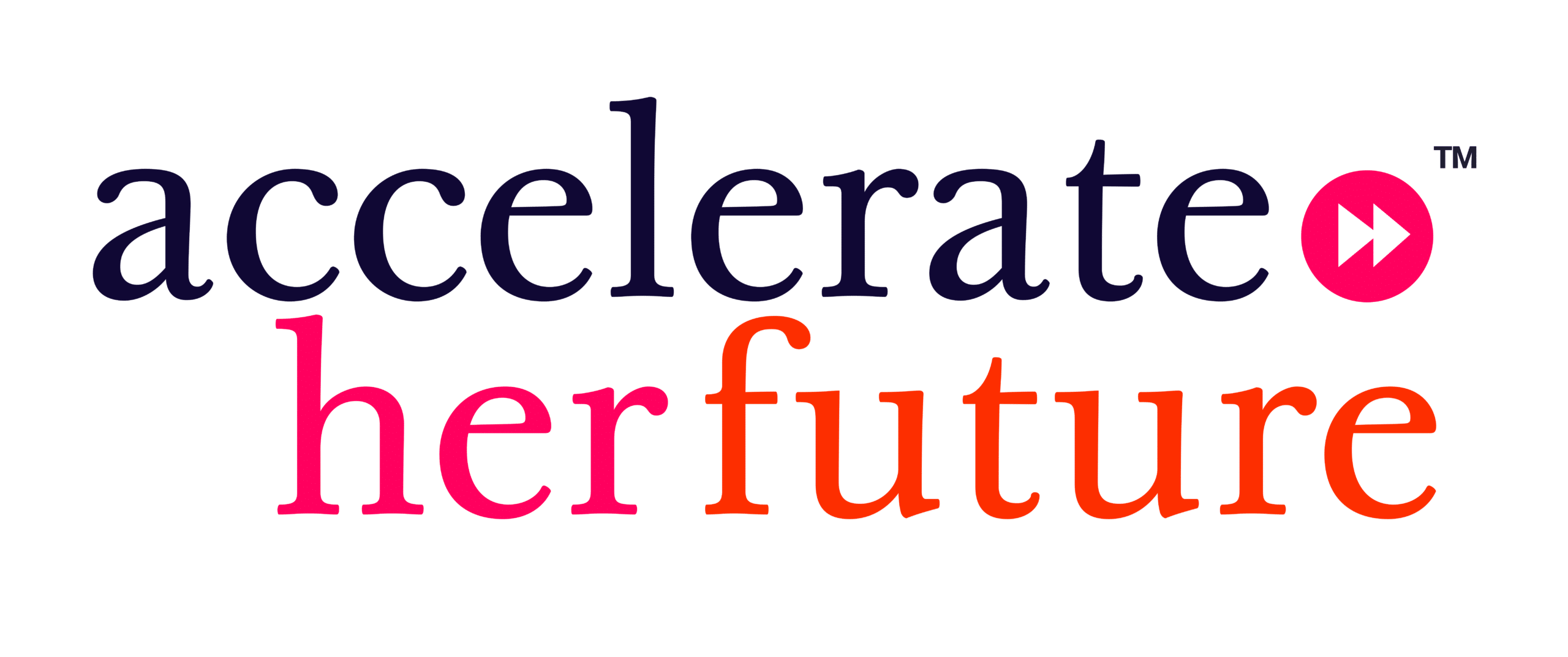Ting Ting Pan on Finding Freedom and Joy Through Self-Actualization
July 18, 2025
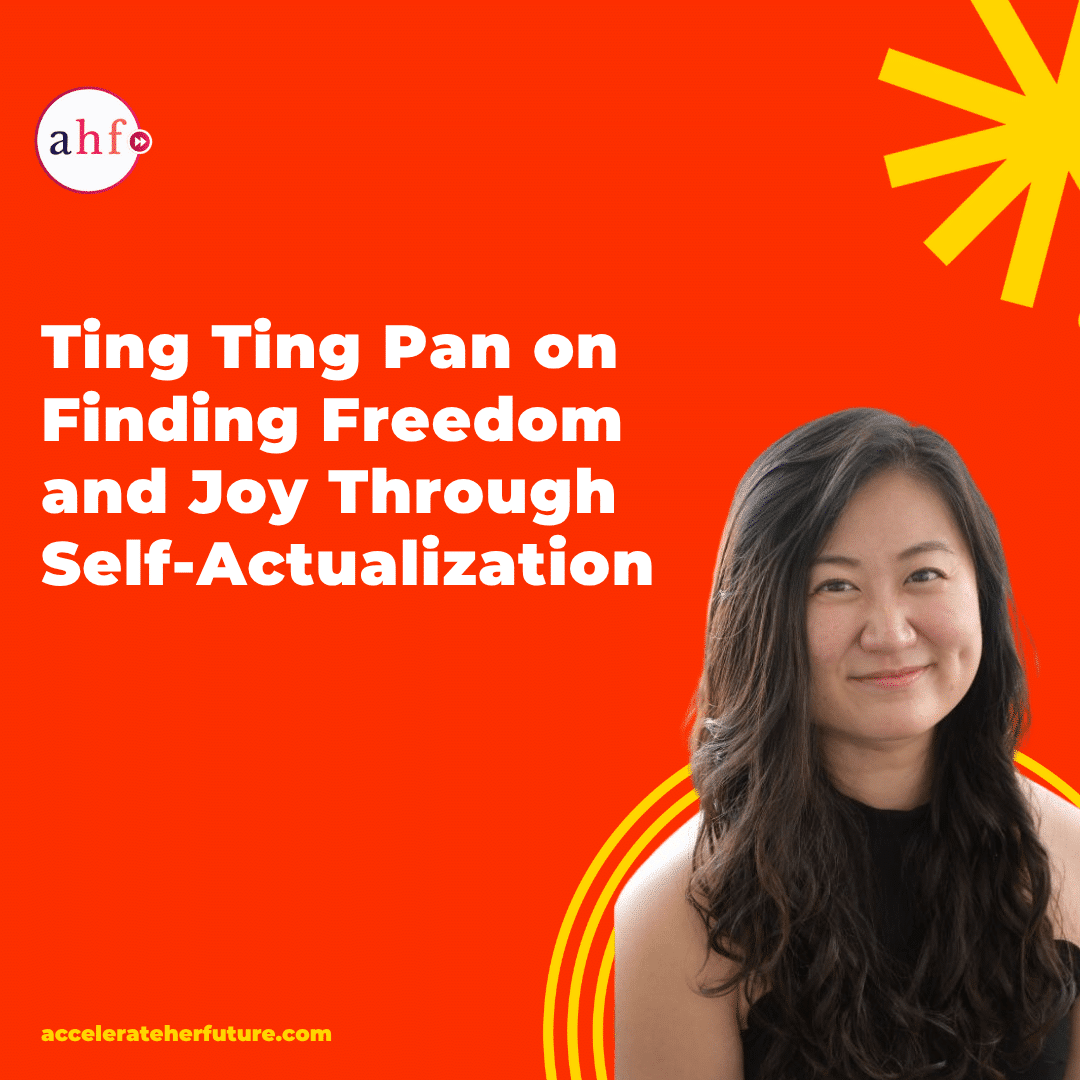
Written by Dr. Golnaz Golnaraghi, Founder and President of Accelerate Her Future
At the Accelerate Her Future Virtual Summit, Flourish, Ting Ting Pan, founder of A Journey Inward Therapy, shared her profound insights during the panel discussion, “New Ways of Being: Cultivating Joy, Creativity, and Flourishing at Work” moderated by Chantaie Allick, along with speakers Janice Liu and Prasanna Ranganathan.
As a registered psychotherapist and Clinical Director of her Toronto-based practice, Ting Ting specializes in culturally responsive, LGBTQ-affirming, and trauma-informed care. Her reflections during the panel were both deeply personal and universally relatable, resonating with attendees eager to redefine their relationship with work and well-being.
Defining Joy and Flourishing at Work
Ting Ting’s perspective on joy and flourishing stems from her background as a psychotherapist. She emphasized the concept of self-actualization, stating, “self-actualization is finding the freedom and joy in moving through this world and in our lives—including work which is one aspect—in alignment with our unique talents and potentials.” Ting Ting urged individuals to celebrate their uniqueness and recognize that their worth isn’t tied to their ability to meet external expectations.
bell hooks, a renowned Black feminist scholar, highlights in her book All About Love that self-actualization is not a solitary journey but a collective one, deeply tied to our ability to foster love and connection in all aspects of life. Ting Ting’s insights build on this idea, emphasizing that flourishing requires both individual self-awareness and organizational environments that nurture uniqueness and authenticity.
Burnout: A Personal Journey
Burnout, a common topic in workplace discussions, was addressed with deep vulnerability by Ting Ting.
She shared that her burnout experience began as early as high school, deeply intertwined with systemic pressures of conditional worthiness experienced in particular by people of colour and children of immigrants. Ting Ting described burnout as “feeling like my entire body was suffocating,” a state exacerbated by masking her authentic self to conform to others’ expectations.
Ting Ting highlighted the systemic nature of burnout, noting, “burnout isn’t because you’re sick; it’s because we live within a system that doesn’t value everyone’s humanity equally.”
Ting Ting reflected on the significance of receiving feedback from friends who pointed out with care and kindness that she wasn’t present in her relationships, which served as a wake-up call to connect more deeply with her values. For Ting Ting, being a good friend and someone people want to be in a relationship with are deeply important.
Ting Ting emphasized the importance of leaning on therapy as well as supportive networks, creating spaces for open, honest conversations about capacity and boundaries. By working with a compassionate manager and team, she was able to take steps toward recovery without the burden of guilt, which she noted as crucial for reclaiming a sense of self.
Tools for a Healthy Work-Life Harmony
To cultivate joy and balance, Ting Ting offered actionable advice. She stressed the importance of self-compassion, saying, “We cannot support others effectively if we’re abandoning our own needs.”
For those navigating professional demands, Ting Ting advocated for honouring the “roadmap” of one’s body.
Drawing on her own experiences as a psychotherapist, she explained that learning to listen to her body allowed her to recognize when she was overextending herself and prioritize rest.
Additionally, she encouraged embracing mistakes as valuable learning opportunities, stating, “Mistakes are a natural part of growth and help us understand what we need to adjust to flourish.”
Joy and Flourishing as Resistance
This perspective echoes the work of Tricia Hersey, founder of The Nap Ministry, who emphasizes the transformative power of rest and joy as tools of resistance. Hersey writes, “rest is a form of resistance because it disrupts and pushes back against capitalism and white supremacy.”
Ting Ting expands on this, suggesting that joy and flourishing are not just personal acts but collective efforts that challenge systemic narratives of worthiness and success. By shifting these narratives, Ting Ting believes we can remove guilt and shame from our work and bring more connection and fun into our lives, fostering environments where everyone can thrive.
Advice for Organizations
Ting Ting called on organizations to foster environments that prioritize healthy productivity over glorifying overwork. This includes creating clarity around job roles and expectations and cultivating cultures that value balance and wellbeing.
She urged organizations to view balance not as a compromise but as a driver of sustained engagement and success, encouraging leaders to create systems that value the humanity of their employees as much as their output.
By redefining success and prioritizing the humanity of employees, Ting Ting’s insights offer a powerful roadmap for individuals and organizations alike to thrive. Her wisdom from the Accelerate Her Future Summit continues to inspire a shift towards workplaces that celebrate authenticity, creativity, and joy.
